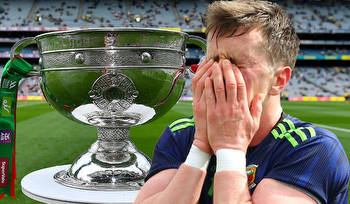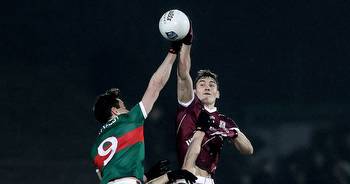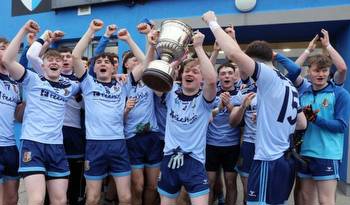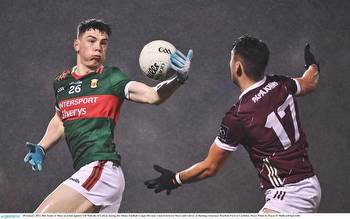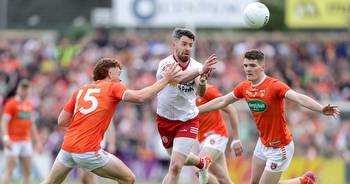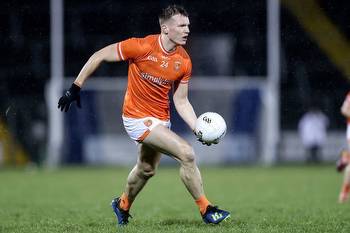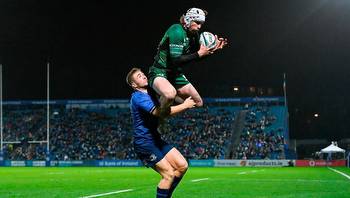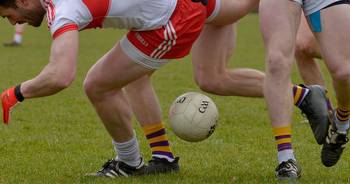A tale of two cities as Munster stagnate
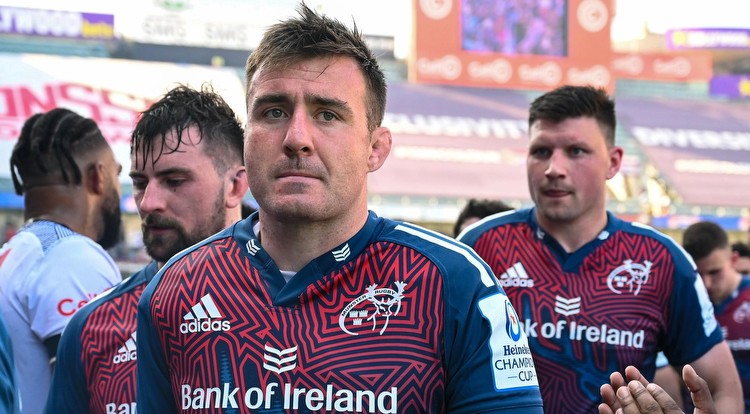
Charles Dickens seems to be having a bit of a moment, what with the new BBC adaptation of the Great Expectations.
he reviews have been lukewarm at best, which says more about those writing the mini series than the source material let’s be honest. The novel is a classic, the adaptation is at most a pale imitation.
Watching Munster on Saturday afternoon we were left very much with the same impression. This was not the Munster everyone fell in love with almost twenty years ago now at this stage. This is the milquetoast version (at least the new Great Expectations is dark and gritty).
To concede fifty points in a Champions Cup tie, should be anathema to what the province stands for, and it is. It’s also not really a huge surprise to anyone.
It’s been trending this way for quite a long time now. The last piece of silverware Munster claimed was in 2011. In the meantime, bar a brief upswing when Rassie Erasmus was at the head of the organisation, Munster have at best stagnated, if not regressed further over time.
All the while, up the M7, Leinster have been surging forward. In this Tale of Two Cities – to continue our Dickensian theme – Limerick has been left behind by Dublin with the foundations laid down by the great sides of the 2000s not really built upon at all.
Some of that is down quite simply to demography, despite Leinster coach Stuart Lancaster’s reticence to admit as much this week.
To be fair to the former England head-coach, he’s not wrong when he says that top-quality coaching is a big part of the reason for Leinster ascendancy.
It’s unquestionable, though, that population and economic power feed into that in a virtuous circle. The structures Leinster rugby can draw upon, the fee-paying schools system in particular, are second to none.
Dublin has become probably the most productive nursery in world rugby over the course of the last generation. It’s made Leinster the bulk supplier of players to the national side.
There were twenty Leinster players in Andy Farrell’s initial squad for the Six Nations. That’s over twice as many as Munster provided. Little wonder the southern province is falling behind.
Little wonder that a Sharks side with host of Spingboks in their ranks – including captain Siya Kolisi – were able to cut open at will in the Durban sun on Saturday afternoon a side with just one starter for Ireland.
You could look at that in an almost fatalistic manner and simply throw your hands up at it, sure what chance did they have really when it came down to it?
Munster, though, are supposed to be about upsetting the odds. Not alone that the province should be really producing more talent than they are. Who was the last Munster superstar?
You’re going back to the generation of Simon Zebo, Conor Murray and Peter O’Mahony (the club’s sole Irish starter). Even at a demographic disadvantage that’s a worryingly poor return.
Some younger players might yet attain that status – Gavin Coombes and Jack Crowley are the most likely candidates – even so Munster rugby as a whole must surely do better.
The Leinster system can’t be imported, what emerges must be some sort of hybrid model. To be fair, that’s what the club have tried to do. Clearly, though, they’ve not yet cracked it.
McStay might be following Jack’s lead
There was always that fear that he’d been left waiting too long, so much so that all the good of the thing was taken away from it by the time he finally ascended the throne.
And, no, we’re not talking about good old Prince, now King, Charlie and his 64 year wait for his mother’s crown, although there are obviously some similarities between his situation and that of Kevin McStay.
McStay looked an heir in waiting, if not the outstanding candidate, for the Mayo job for the best part of fifteen years. The call, though, never came. Not until it seemed like we’d seen the best of this generation of Mayo footballers. Would that be the former RTÉ pundit’s lot? To preside over the end of a golden period? It was tempting to imagine that as a distinct possibility.
The Castlebar man might even have had reason to be annoyed at how long he was kept waiting. Ambition – and not just for himself, but for his county – curdling into resentment at being overlooked.
That wouldn’t at all be McStay’s style though. From the day one he’s exuded positivity, hope and genuine ambition to finally land Sam Maguire. If the task is to preside over the end of an empire, somebody’s forgotten to tell Kevin.
Instead of his long wait for the throne being a burden, there’s a chance it might even have been the making of the manager. Learning from his own experiences as Roscommon manager, as well as taking note of best practice from other managers through his role as a high-profile pundit.
Indeed, the way he’s set out his stall as Mayo manager so far this year is more than a little reminiscent of how Jack O’Connor went about his business with Kerry last year.
O’Connor’s Kingdom hit the ground running, hit every game and every competition with everything they had, starting strong as possible selections most days, before going to to win the National Football League. McStay has even got a new face in the number 6 shirt, Conor Loftus, around whom so much his side’s good play revolves.
The National League final last Sunday with Galway was a proper decent game of ball too and Mayo were well able for whatever the Tribesmen threw their way, responding brilliantly any time Pádraic Joyce’s men threatened to reel them in in the last fifteen to twenty minutes. Mayo wanted it, went for it, and got it. That’s only got to be a good thing.
The only potential fly in the ointment is that the games are coming thick and fast, with Roscommon this weekend calling on Castlebar, before a potential semi-final rematch with Galway in Salthill a week after that again (should they best the Rossies).
It feels a long way out from the business end of the championship to have to peak. Even so Mayo are the sort of county that thrive on the momentum of a good run.
And, to be honest, after the Galway match they could probably throttle back for a period again before building back up for the knock-out stage of the All Ireland championship.
We tend sometimes to over intellectualise and complicate these things, second guessing the value things like FBD Leagues, National Leagues and Connacht titles.
If somebody like Jack O’Connor sees the value in them, that’s good enough for us. And for McStay.
New All-Ireland structure has a lot of busywork
It’s hard to believe the All Ireland senior football championship is starting this weekend with provincial games taking place across all four provinces.
Being wholly honest, it kind of caught us on the hop. We knew it was going to start early this year. Even so, it’s kind of crept up on us almost by stealth. We suppose that’s what happens when up to a couple of weeks ago we were all fully focussed on the National Leagues.
It’s hard to walk and chew gum in this game we guess. You very much think on a week by week basis, which might explain why it’s only now that we’re only beginning to consider the consequences of the new structure for the All Ireland championship... and it’s not really great to be honest with you.
It’s a lot more games, but the feeling we would have about them is that a lot of them are pretty meaningless, especially for the bigger counties.
Take the new round robin series. Out of groups of four, three advance. That’s an awful lot of extra games to eliminate very few teams.
The top side advance directly to the quarter-finals, with the second and third placed teams playing in preliminary quarter-finals, making it easier almost to stay in the championship as be booted out of it. Where’s the sense of jeopardy in that?
It looks a lot like busywork if we’re brutally honest. It’s going to be hard for fans to get too hyped about the prospect of this not so Super 16 or anything before the preliminary quarter-final stage.
There’s also the potential knock on effect for the provincial championships, which for Division 1 sides won’t really matter. At all. You’re still going to be into the All Ireland series regardless.
It will matter a bit more for the sides striving to avoid the Táilteann Cup (Divisions 3 and 4 and the bottom half of Division 2), but they’re sure to lose some of their lustre too.


